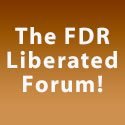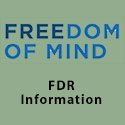 Whether you found this blog as a parent or family member wondering what happened to your loved one, or you are someone intrigued by the ideas of FDR and considering joining the community (as I once was), I offer you the big picture.
Whether you found this blog as a parent or family member wondering what happened to your loved one, or you are someone intrigued by the ideas of FDR and considering joining the community (as I once was), I offer you the big picture.
Stefan Molyneux has long been associated with the libertarian community. His goal has always been to be recognized as a person of importance.
If you’re new to all this, it’s easiest to think of libertarians like the US Republican or Democrat political parties—in that within each party you’ll find a range of liberal-to-conservative view points. In general, libertarians believe that government is never a solution to the problems that face us. Like US President Reagan, libertarians believe the nine scariest words in the English language are, “I’m from the government, and I’m here to help.”
As I mentioned, however, there are a range of beliefs. On one end, you’ll find libertarians who believe in small government (however they define that) and at the opposite end are those who believe in no government (anarcho-capitalists)—and everything in between. Some are atheists. Some believe in a Higher Power. Within libertarianism, you’ll find many different views on economics. It’s a single word that covers a broad area of thinking.
On Stefan Molyneux
Stefan Molyneux is an atheist anarcho-capitalist. He received early notoriety as a great explainer of already existing concepts. Many of these early podcasts are downloadable from his site and from YouTube. In addition, some of his early papers are still on-line at reputable libertarian sites. Make no mistake, Molyneux is a brilliant man and an extraordinary teacher. He is very engaging and many people tend to connect with him on a personal and emotional level. While he has not made many original contributions to libertarian thinking, the few he has made are typically grandiose (and often preposterous).
Unfortunately, Molyneux often ignores the need to cite his influences or give references. As a result, many of his followers today—who came into FDR as a result of his podcasts—mistakenly believe that most of the ideas discussed originated with Molyneux. Is it plagiarism? Well, Molyneux doesn’t specifically claim to be the author of those ideas. He simply discusses them—unattributed—with great passion and lets his acolytes draw their own conclusions.
This troubles me because there may be some deception or self-deception occurring here. In his passion, does Molyneux simply forget to attribute his sources? Or is he simply addicted to the accolades from his less-well-read followers?
Molyneux has a unified theory of the topics (politics, philosophy, psychology, economics, relationships, and religion) that he discusses on FDR. He expresses his views on each of those topics with assumed authority. His closest followers appear to concede that authority on these subjects to Molyneux, despite the fact that he has little training or apparent practical accomplishments in any of them (beyond his own claims).
As a result of this unified truth, his followers don’t believe he’s just teaching them ideas about libertarianism or philosophy—they believe (and he believes) he is giving them the very key to existence.
What’s important to know is that in Molyneux’s head, he has them all tied together as one cohesive truth. In other words, to accept Molyneux’s beliefs, you must accept his conclusions in all of these areas. If you do not, he typically attempts to demonstrate that some psychological flaw is preventing you from understanding the truth he is revealing. His critics often accuse him of psychologizing any detractors.
As a result of this unified truth, his followers don’t believe he’s just teaching them ideas about libertarianism or philosophy—they believe (and he believes) he is giving them the very key to existence. Now, one can say he is a cult leader or one can say he is not a cult leader, but I know one thing—a unified theory of the universe (that only the leader knows and offers to his followers as the key to happiness) is something nearly every cult leader has in common.
Defooing and the break-up of families
Another significant Molyneux idea—one that has caused immeasurable suffering within the afflicted families—is that family relationships are voluntary. In other words, you owe your parents nothing because you didn’t get to choose them. They freely accepted the positive obligation of birthing you, caring for you, teaching you about ethics, and sending you out into the world as a healthy adult. I agree with the principle—it can help foster healthy families by giving children permission to divorce unhealthy ones.
No, in and of itself—the principle of voluntary relationships is not the real problem of FDR. The problem is how Molyneux subverts it.
He has introduced into the FDR community the idea of defooing. In this case, FOO is the abbreviation of a common psychological term meaning “family of origin.” As you can imagine, a great deal of study in psychology is devoted to understanding how your family of origin shapes you.
Defooing, on the other hand, is purely a Molyneux term. It refers to completely leaving your family behind and having no further contact with them. Now, most psychologists do agree that a few family situations are so toxic, the most mentally healthy course for a patient is to separate from them. However, they also quickly point out that these are extreme cases and typically a great deal of counseling with the family is suggested before such an act.
Not so with FDR.
If you read the book “On Truth” by Molyneux, you’ll begin to understand how he truly views families, using arguments that (I believe) are without merit or substance both philosophically and psychologically. He tries to tell you that your parents are liars and bullies if they believe in government or religion. Your childhood was a prison and you are a victim of abuse.
Got that? If your parents believed in any kind of religion or government, you were a victim of abuse. Also, if your friends believe in either of those two concepts (which they nearly always do), they are corrupt and should likewise be abandoned. So, defooing really means getting rid of everyone.
He believes that the reason you struggle with accepting the truth and beauty of his version of an anarcho-capitalist society is a direct result of this abuse. You have accepted the role of slave. Only by throwing off the shackles will you find your way to freedom and happiness.
In this case, of course, the “shackles” are your current family and your current friends.
As I said before, one can say he is a cult leader or one can say he is not a cult leader, but I know another thing—convincing one’s followers of the need to separate from their family and friends and associate only with other members of the group is something nearly every cult leader also has in common.
One more thing about defooing. No one ever seems to pick up on the fact that Molyneux’s first two philosophy books are clearly targeted to late-teen to early twenty-year-olds. Whoever heard of a “philosophy” that targets a specific age group?
Since Molyneux believes that most family relationships are bad, he’s doing his followers a favor when he convinces them to defoo. That’s the danger and destruction of FDR. If you are a victimized parent, that’s what probably led you here.
His goal has always been to separate kids from their parents, a goal made easier by the fact that nearly everyone in his target age range is already in the difficult struggle of finding his/her independent self. To many of them, Molyneux is the pied piper.
Molyneux has defooed his family and speaks often of his rage for his mother and brother. He convinced his wife to defoo after they were married.
Despite his claims of innocence, most assuredly if Molyneux removed all of his defoo “therapy” podcasts (such as the one he did with Tom) from the board and promised he would never counsel another potential runaway again, I believe there would never be another FDR-related defoo.
In other words, although Molyneux’s book “On Truth” sets the hook, it is only a recruiting tool and not persuasive enough to allow him to achieve his goal of family breakup. Based on the many hours I’ve spent listening to his “counseling” podcasts, watching him interact in the chat rooms and on the main forum, I believe nearly every defoo is heavily, personally influenced by Molyneux in one way or another.
…probably hundreds of podcasts about defooing. But how many podcasts are about developing a healthy relationship with your parents?
Zero.
Amazingly, each of his followers who suddenly decided they were the victims of abuse believe they came to that conclusion of their own free will with no input or influence from anyone.
Sometimes Molyneux offers the weak excuse that he is only interested in building healthy families. He probably has hundreds of podcasts that are about or mention defooing at one point or another. Would you like to know how many podcasts he has devoted to developing a healthy relationship with your parents?
Zero.
The FreeDomain Radio Community
FDR is a financial enterprise and Molyneux’s sole source of revenue. He receives money in the form of contributions or subscriptions. Molyneux does not simply preach the truth—he packages it and sells it.
Despite Molyneux’s defensive responses to media inquiries, FDR is as far from being “simply a Web site” as you can imagine.
It is a complicated system of video and audio podcast outreach, on-line forum, chatroom, media library, books, and a distribution of members into a hierarchy. There is continual development of technology to allow for immediate and one-on-one counseling and discussion. Molyneux and his wife, as well as some members of his “inner circle,” also own Facebook pages devoted to child abuse or parenting, which may serve as intake mechanisms for the community.
Few people realize how much of what is “FDR” takes place within the chat room, through twitter, and during Skype chats. It is through those means that FDR members get the personal attention from Molyneux that they crave, as well as (since many are now alone and without family and friends) the ability to socialize with others. All the necessary work of indoctrination, love-bombing, and social control gets done here.
There is clearly a social system on display: at the highest level in the hierarchy is an inner circle that enforces behavior and thoughts posted to the site. Critics of the site or Molyneux are swiftly purged.
FDR members have vacationed together, attended annual BBQ’s at the Molyneux home together, attended philosophy and psychology seminars conducted Molyneux and his wife, and more.
But above all—more than anything else—FDR members are intellectually, psychologically, and emotionally invested in a utopian worldview based on Molyneux’s unique approach to anarcho-capitalism. Even though they understand at some level that the utopian society they hope for is at minimum generations away, their investment is powerful enough for many of them to live lives in near-isolation, each one a modern-day Diogenes, hoping to find “honest and virtuous relationships” based on Molyneux’s definition of such relationships.
Okay—so is it a cult?
You’ll have to decide that for yourself. I think it might be. If it is, I think of it as a baby cult. It’s relatively new and I’ve been watching it with the same fascination that an astronomer would watch the birth of a star. I don’t think Molyneux has a master plan. I think he is, in fact, the most loyal FDR member of them all. FDR seems to be springing up organically around his need to be revered.
In this blog, we’ll examine specific issues of FDR. I’d be very interested in your input. One of my favorite sites is Liberating Minds. Many of these issues are discussed there as well. Why not drop on by?







